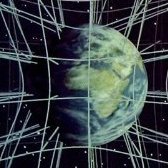Leaderboard
Popular Content
Showing content with the highest reputation on 08/28/23 in all areas
-
Saying it's relevant is not to say reducing population is THE solution, only that it may be part of a suite of solutions that protect arable land, wetlands, beaches, parks, wilderness preserves, watersheds, airsheds, oceans, etc which are vital to having a nurturing planet. Working against this common sense suite of solutions are toxic ideologies and religious beliefs, which sometimes foster a notion that my group is special and chosen and we should have large families and lots of room to push out the less-special people. And, allied with that, is the anthropocentric view that we can also push out other species who just don't matter as much. One reason I avoid trying to define a global carrying capacity is that quality of life is not easily rendered in numbers and constant over all bioregions. Phoenix is already overpopulated at a couple million, and is already massively dependent on resources imported from other areas, and struggling grimly to find enough water. The Mekong delta OTOH could probably handle more people, with its society having a more low-carbon lifestyle and immense biological richness and fecundity all around. That said, I haven't heard of too many places where ordinary people (not local business and tourism boosters) are crying dear god we just need more people! I live in a relatively sparsely populated place, and yet even here there has been a decline in many metrics of livability. My city is already prone to spells of poor air quality due to the bowl effect of hills, and the metro is a mere 120,000 people. It is dirtier, less walkable, the creek for which the town is named is threatened by runoff, traffic is ugly, people are less friendly, housing prices are insane and there is the unmistakable impression that if we could just stop growing for one freaking minute and catch our collective breath then we might be able to catch up on some of these problems. It is just not normal and healthy for human civilization to go from 3 billion people to 8 billion in less than my lifetime. Yes. I too have pointed this out in other threads. Western nations spread their rapacious level of consumption, both by stripmining resources of developing countries, and by selling a Western lifestyle to them. And places where population increase is rapid do then experience a double-barrelled blast of social and ecological problems. And there is the sad paradox of bringing in vaccines and reducing child mortality and better crop yields....all supposed to improve life...and then you have a disruptive rapid surge in population that later struggles to sustain itself when drought years come. This happened in the USA too, when too many people came in and grew crops on land really only suited for grazing sheep or cattle. The result was an eco disaster called the Dust Bowl. Millions of Californians are descended from the torrent of refugees it created.3 points
-
I don't see how it follows. (We are causing mass extinctions ⇒ we are too many)2 points
-
Can you "bunk" it first? It hasn't escaped my attention that you've used the word 'therefore' incorrectly three times since you've been here.1 point
-
What you have posted is not a database. Given the piece of code you've shared above as a prompt, it's likely that ChatGPT—a machine learning model trained on a large dataset to assist with natural language understanding and generation—would produce an output saying, 'No, this is not a database.'1 point
-
Two persistent misunderstandings block a clear view of the problem, one that advocacy for population decrease is some Right-Wing wolf in sheep's clothing, and is only aimed at brown people. I've tried to dispel that one. The other is that all land is equal and that people can live on any dry surface. Well, maybe very affluent people, who can hire a team of engineers and have a million dollars on hand. The rest of us need to keep a distance from seashores, flood plains, dust storms, swamps, unstable slopes, dry lands which lack a sustainable aquifer, fire-prone woodlands, etc. It's surprising how little of Earth s land area is really suited for human habitation. A good point, the elimination of extended family homes is one of the hallmarks of the over-consuming USA. Dad was 500 miles away, so I had to buy an extension ladder instead of us just sharing one with him. We also largely eliminated the boarding house, a handy setup for single people that pooled resources nicely and provided a homecooked meal.1 point
-
1 point
-
No. What I mean is that the metric of spacetime itself becomes time-dependent here, in such a way that it appears to a far-away stationary observer as if the EH was oscillating with a quadrupole moment, even though the “position” of the horizon remains constant locally in a small neighbourhood. So what oscillates here is the relative separation between events, but not the coordinate position of the events themselves. This is somewhat similar to what’s called the “ring-down” phase at the end of a BH merger, where energy-momentum is dissipated away via gravitational radiation.1 point
-
The ruler does not expand. The expansion is present on the distances of hundreds Mpc's. Expansion of space is a feature of homogenous isotropic space. But the physical space is not homogenous and isotropic. It has local areas of various densities of energy and momentum. They are sources of gravity, and they cause the spacetime to curve this way and that way, to shrink and to expand here and there with various rates. Only when all these local effects are averaged on the distances of hundreds Mpc's, the net effect of them becomes a uniform expansion of space.0 points
-
It's true that contemplating death can be unsettling, but you've brought up an important topic. Wondering about what lies beyond death is a universal curiosity. While we can't know for certain, various beliefs and philosophies offer perspectives.-1 points
-
Your insight into the Buddhist perspective is intriguing – the concept of the underworld and achieving nirvana sparks introspection. In a different vein, have you come across we don't allow advertising here? They showcase fascinating epitaph examples that might align with these thoughts. Ultimately, pondering such profound questions reminds us to cherish life and seek peace in whatever comes next.-1 points
-
Well I think it most certainly is . But if you think the only important species is humans, then maybe it's not. Maybe I'm odd, but I value other species, and hate to see animals like Gorillas reduced to a few thousand, while we are nearly 8 billion.-1 points
-
-1 points
-
There wouldn't be any evidence with something like the Sun, that occurs progressively, coinciding with our lifestyles. 1) we aren't questioning it 2) it isn't an apparent threat 3) it wouldn't be apparent 4) at night, the sun is down, which would allow us to forget. 6) there's no incentive for someone to look into something that cannot first be identified. We aren't going to question the world we can comfortably live in. The ecosystem cannot be quantified 100%, as been the obvious notion...since someone looked. I looked up the ozone molecules, and that would be impossible. I'm wrong there, admittedly. One other thing I'd like to bring up and ask you guys about, is why my parents Mercury thermometer broke in the late 90's. If we look into real-feel, and ambient temperature... I think that could lead to something. If it is indeed different, more, or less solar radiation penetrating our atmosphere, then we would want to know that it's safe.-1 points
-
Global Warming (technology [cars etc.]) disrupted a well-synchronized ecosystem. The ecosystem includes atmosphere and ocean. This slowed down the earth's core, thus weakening the magnetic field & cutting apart the magnetosphere. The ozone layer isn't healing, but rather is collecting in pressure gradients across the globe (maybe?) Not gravity (pressure). such as teh beach. A distinctively different atmosphere can't focus out so many cosmic rays: weakened magnetic field & global warming. Therefore, (also because there's much less refraction than there would be) harsher wavelengths or radiation is hitting the ground (us). This would explain why it feels cool and is cool, but under the sun it's extremely different than it used to be. Another theory is that the use of electricity prevented an ongoing cohesive ecosystem. *example: alot of static electricity in the air or wavelengths crossing... prevented lightning strikes, thus no cloud formation or storms/weather. What do you think? (aside from how does global warming slow down the rotation of the earth)-1 points
-
I'm not convinced you really mean that, I hope you post something that proves me wrong; I think you hope to convince me to blindly follow your brain farts... You don't even realise that a neg in these circumstances, is a positive; see yin-yang!!!-2 points
-
Blackholes are like a rift. You can't wrinkle a sheet and have a perfect rectangle still. Because that sheet is wrinkled, there is air between teh bed & the motion of physics initially involved. But, still... without what you know-- there is always another factor which constitutes for what we do (see) know. There are so many of these types of things occurring in space, on a cosmic scale. All of the 'blackholes' are the sum of unaccounted for (empty spaces), which must be ultimately accounted for. Empty spaces may be inferred to mean, caused by energy. Therefore, there are no gaps in succession of 'space', at a level of our comprehension. In addition to this, many of these blackholes developing cannot possibly equate perfectly to a current and perfect balance, except but once in a blue moon. Therefore, we have a distorted and spaced-out (various blackholes) amount of 'negative' energy. We may as well refer to that as 'dark matter'. If enough 'dark matter' is accumulated, yet unaccounted for... the accounting must prevail. So a star may be born, particles accumulating-- or a star may implode. I would refer to these causes of action in space as 'cosmic vibrations'. [I'm guessing that this is similar to the development of String Theory] This is Foster Theory-2 points
-
-3 points








